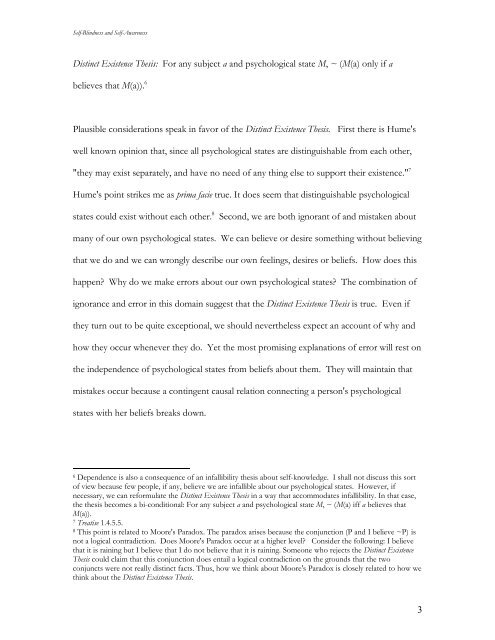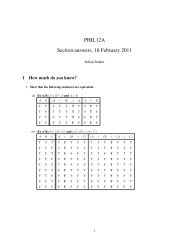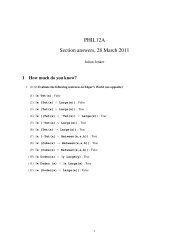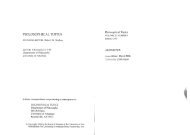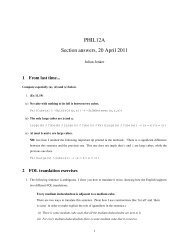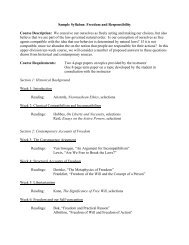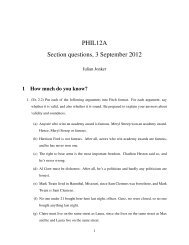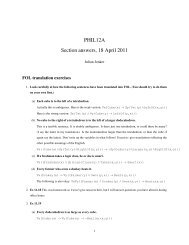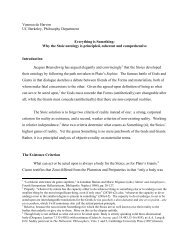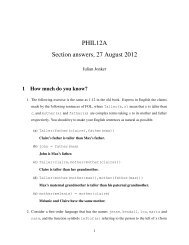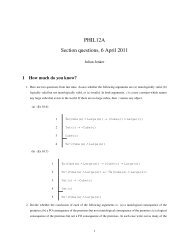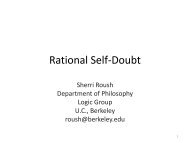SELF-BLINDNESS AND SELF-AWARENESS - Philosophy
SELF-BLINDNESS AND SELF-AWARENESS - Philosophy
SELF-BLINDNESS AND SELF-AWARENESS - Philosophy
You also want an ePaper? Increase the reach of your titles
YUMPU automatically turns print PDFs into web optimized ePapers that Google loves.
Self-Blindness and Self-AwarenessDistinct Existence Thesis: For any subject a and psychological state M, ~ (M(a) only if abelieves that M(a)). 6Plausible considerations speak in favor of the Distinct Existence Thesis. First there is Hume'swell known opinion that, since all psychological states are distinguishable from each other,"they may exist separately, and have no need of any thing else to support their existence." 7Hume's point strikes me as prima facie true. It does seem that distinguishable psychologicalstates could exist without each other. 8Second, we are both ignorant of and mistaken aboutmany of our own psychological states. We can believe or desire something without believingthat we do and we can wrongly describe our own feelings, desires or beliefs. How does thishappen? Why do we make errors about our own psychological states? The combination ofignorance and error in this domain suggest that the Distinct Existence Thesis is true. Even ifthey turn out to be quite exceptional, we should nevertheless expect an account of why andhow they occur whenever they do. Yet the most promising explanations of error will rest onthe independence of psychological states from beliefs about them. They will maintain thatmistakes occur because a contingent causal relation connecting a person's psychologicalstates with her beliefs breaks down.6 Dependence is also a consequence of an infallibility thesis about self-knowledge. I shall not discuss this sortof view because few people, if any, believe we are infallible about our psychological states. However, ifnecessary, we can reformulate the Distinct Existence Thesis in a way that accommodates infallibility. In that case,the thesis becomes a bi-conditional: For any subject a and psychological state M, ~ (M(a) iff a believes thatM(a)).7 Treatise 1.4.5.5.8 This point is related to Moore's Paradox. The paradox arises because the conjunction (P and I believe ~P) isnot a logical contradiction. Does Moore's Paradox occur at a higher level? Consider the following: I believethat it is raining but I believe that I do not believe that it is raining. Someone who rejects the Distinct ExistenceThesis could claim that this conjunction does entail a logical contradiction on the grounds that the twoconjuncts were not really distinct facts. Thus, how we think about Moore's Paradox is closely related to how wethink about the Distinct Existence Thesis.3


